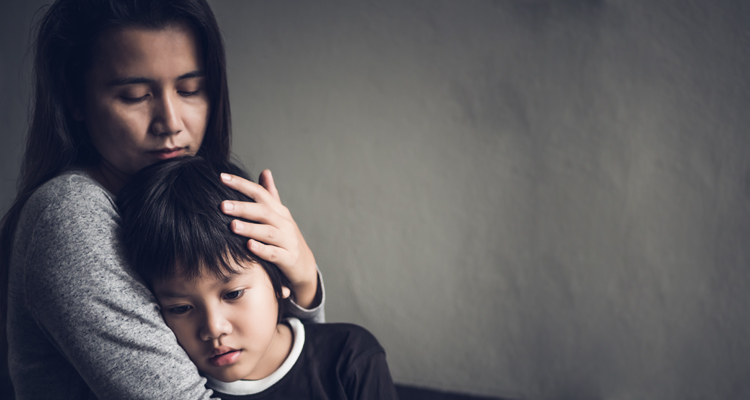Between social media and news reporting, it is hard to avoid hearing reports of tragic or disturbing events; and as a result, kids are often exposed to the details of horrific tragedies at a young age. Many times, too, these events occur at schools, leaving kids scared and feeling anxious about returning to school the next day.
Parenting author and educational psychologist Michele Borba cautions that when talking to kids about tragedy, “The events of a tragedy affect children differently. The truth is we don’t know how our child will handle a tough event.”
As adults, it’s difficult enough for us to process these tragic events and know how to move on—so how can we even hope to help comfort and reassure our children, especially when we can’t predict their reaction? Obviously, this is not easy, and we must approach these conversations sympathetically to the maturity and personality of each individual child. Here are some tips, though, that will help guide you through the process of talking to your kids when tragedy strikes so they can return to school and other activities without living in fear.
Limit Images and News Coverage
Obviously, when a tragic event occurs, there will be continuous news coverage, photos and videos will be all over social media, and it will be hard to even turn on the radio without mention being given to the tragedy. This can become overwhelming even for adults, so certainly children can become distraught over the constant coverage. Screen and limit what your child sees and hears from news and social media sources until reportage dwindles.
Coordinate with School or Other Adult Influences
Children respond differently, and some may be more emotionally impacted than others. If you have particular worries about how your child is processing this tragedy, speak to their teachers, coaches, or other adult influences in their lives. Let them know your concerns, and ask them to keep a close eye on how your child is doing when you are not around. This will help them to keep a mindful watch for any conversations other kids may be having about the tragedy in order to help guide or redirect these conversations. Perhaps this would also be an opportunity to meet with your child’s teacher to discuss safety protocol in an effort to re-instill confidence in your child that they are safe and secure at school.
Be Honest
Kids are often smarter than we give them credit for, and they see right through the sugar-coating we try to put over tragic events. When there are disasters, when people have died or been hurt, there’s just no way to make this “OK.” Acknowledge to them that what happened is awful. Do not try to discredit sadness or minimize the fear that is a part of witnessing or being involved in a tragedy. That said, especially with younger kids, there is no need to go into the gruesomeness or graphic details of what has occurred. However, kids will be much better able to cope and sort through their reaction and emotions knowing that their parents accept the truth of the situation and are willing to have a “real” conversation.
Acknowledge Your Own Fears
Along the same lines of being honest, if kids feel as if they are the only ones scared or upset, they may begin to feel isolated or as if there is something wrong with them. Speak with them about how you’re feeling too. The important thing to remember, though, is to still make them feel as if they are safe. For example, you can say, “It is definitely scary to think about someone breaking into our house, but that is why we always lock our doors at night to keep out anyone we don’t want coming inside.” Acknowledge the reality of the scary event and how you feel about it, while reassuring them with a plan or other reason for them to not worry and to feel secure.
Be Physically Close
Many kids are comforted solely by the physical presence of their parents. This may be a time when it’s OK to stay a couple minutes longer at bedtime. Maybe it’s a perfect opportunity to go visit them at lunch at school. Plan a snuggle movie day or go out on a fun day trip exploring some place new! Some additional personal time being side-by-side with them will help reiterate to your kids that you are here and they are safe.
There is no easy answer for why evil and tragic things happen, especially in the mind of a child. All we can do as parents and educators is continue to do our due diligence in protecting them, loving them, and reassuring them that there is also much good all around them.
“My mother would say to me, ‘Look for the helpers. You will always find people who are helping.’ To this day, especially in times of disaster, I remember my mother’s words, and I am always comforted by realizing that there are still so many helpers—so many caring people in this world.” –Mr. Rogers
Even in the midst of the most horrific tragedy, there is still good that will shine through. Talking to kids about tragic events is not easy, and it cannot be scripted or predictable, but the conversation is most certainly necessary to help your child cope and work through all of their complicated emotions, thoughts, and questions.
(Article was originally published in February of 2018 and was updated in May of 2022.)






































